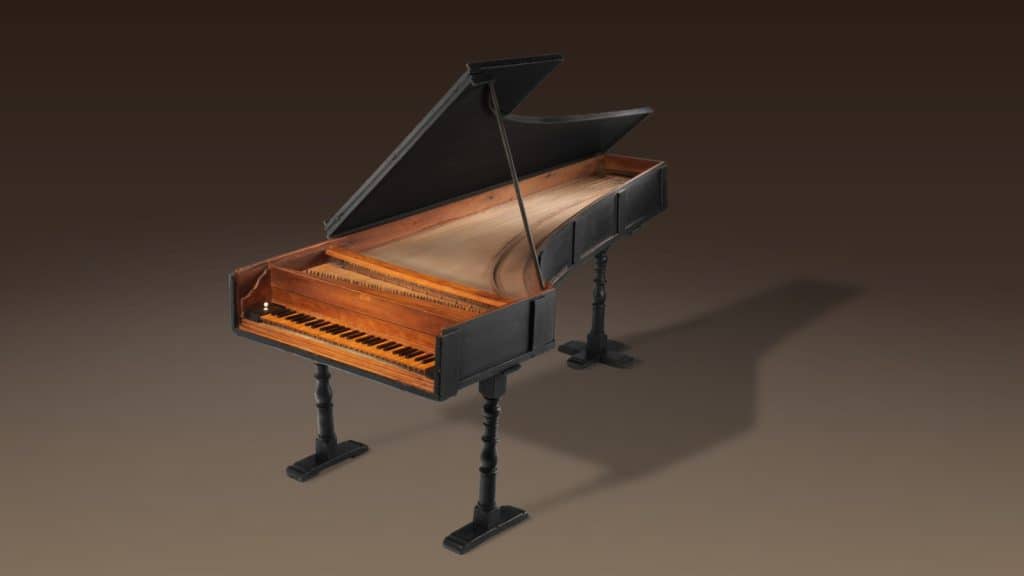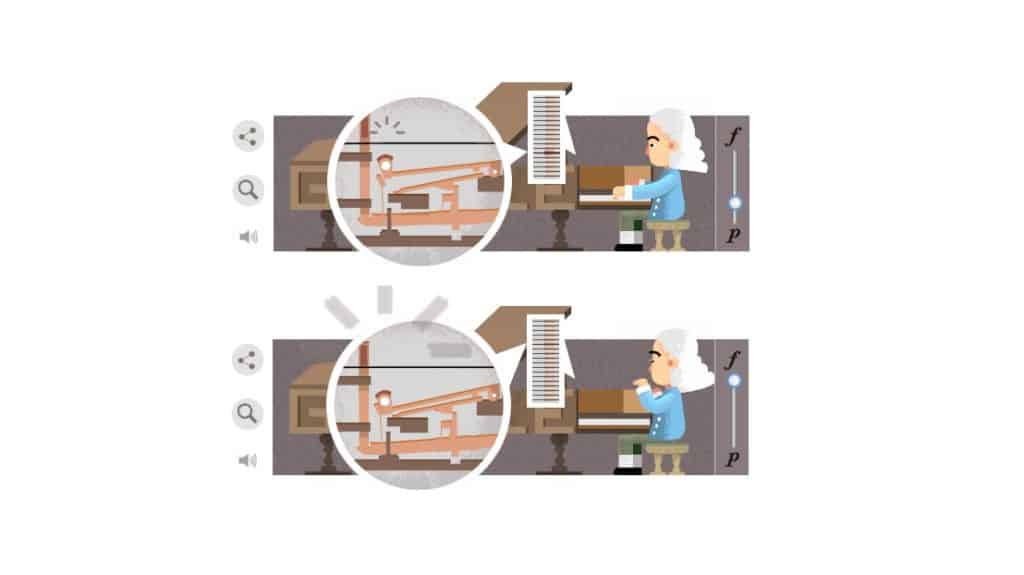While his name may not be well known, anyone who plays the piano should have at least heard of him. After all, when we play the piano, we all want to feel Bartolomeo Cristofori’s groundbreaking invention under our fingers.

While his name may not be well known, anyone who plays the piano should have at least heard of him. After all, when we play the piano, we all want to feel Bartolomeo Cristofori’s groundbreaking invention under our fingers.
The Italian instrument maker Bartolomeo Cristofori (1655-1731) changed the world of keyboard instruments by inventing the action mechanism of the fortepiano. Revolutionary at the time, the fortepiano was the first instrument to allow dynamic playing across the entire keyboard. This also gave the new instrument its name: the fortepiano, or pianoforte for more modern instruments.
When Bartolomeo Cristofori accepted a position as an instrument maker and tuner for Ferdinando de Medici at the end of the 17th century, he worked on the development of a new action mechanism. His primary concern here was the free dynamic transmission of velocity with the immediate release of the piano string. His mechanism moves the hammer onto the string and lifts the damper at the same time.
Before the invention of the pianoforte, the harpsichord was the predominant keyboard instrument. Its strings are not struck by hammers but plucked by a plectrum made from quill or plastic. The term ‘harpsichord’ is also used for the whole group of similar plucked-keyboard instruments, which also includes the spinet. However, unlike other plucked string instruments, the mechanics of the harpsichord do not allow for touch-sensitive playing. Therefore, this instrument will never reach its full expressive potential.
You’ll find Cristofori instruments from the Medici collection in several museums. For example, you could admire the instrument pictured above in the Metropolitan Museum of Art in New York. The Museum of Musical Instruments at the University of Leipzig has also dedicated an exhibition room to Cristofori. This extensive exhibition of historical musical instruments is definitely worth a visit – it even includes original instruments from Ferdinando de Medici’s collection.
Of course, you rarely hear historical instruments today. In the video below of a concert at the Metropolitan Museum of Art, you can hear that the sound of the Cristofori instrument, while touch-sensitive, is still far from what we know as piano sound today.
It is also possible to electronically recreate these sounds if you want to play historical music. For instance, every digital piano has at least one harpsichord or cembalo sound. The Modartt Pianoteq software piano is highly interesting in this context: It offers several historical instruments from the collection of the Kremsegg Castle Museum near Linz in Austria as virtual instruments.
In honor of Bartolomeo Christofori’s invention, Google dedicated a Doodle to him on his 360th birthday. While the doodle is very simple, it actually illustrates the principle of the fortepiano very well: you can control the player with the piano-forte slider to make the melody louder or quieter.

In fall 2024, Yamaha announced the new CLP-800 series. The key refinements concern the sound generation and playback systems.
With a scaled-down cabinet and speaker system, a portable piano under $2,000 offers a great keyboard and sound engine.
The Italian manufacturer has introduced the new models of the Studiologic SL-mk2 series with new features and improved details.
Speakers and piano sound — does your digital piano sound better when you're using headphones? Find out why here.
With their high-quality playability, the digital pianos in the Kawai CN series inspire both demanding beginners and advanced players.
Piano or digital piano? The Yamaha TransAcoustic piano offers the best of both worlds. The perfect blend of acoustic and digital piano.
Acoustic soundboard, grand piano action, and wooden keys: A hybrid digital piano combines maximum playing comfort with high-quality sound.
Play the piano with headphones - a hybrid piano combines an acoustic piano with a mute function and an electronic sound generation.
Buying high-quality headphones for digital piano: Why invest in good digital piano headphones and how much do they cost?
The Kawai ES Series is popular with beginners and advanced players alike: High-quality features at prices ranging from $400 to $1,200.
Wireless MIDI systems are useful when the instruments themselves are not Bluetooth-compatible. But what makes a good Wireless MIDI adapter?
The Studiologic SL series offers USB MIDI controllers with high-qualtiy hammer action keyboards for MIDI studio and live use.
You are currently viewing a placeholder content from Facebook. To access the actual content, click the button below. Please note that doing so will share data with third-party providers.
More InformationYou are currently viewing a placeholder content from Instagram. To access the actual content, click the button below. Please note that doing so will share data with third-party providers.
More InformationYou are currently viewing a placeholder content from X. To access the actual content, click the button below. Please note that doing so will share data with third-party providers.
More Information